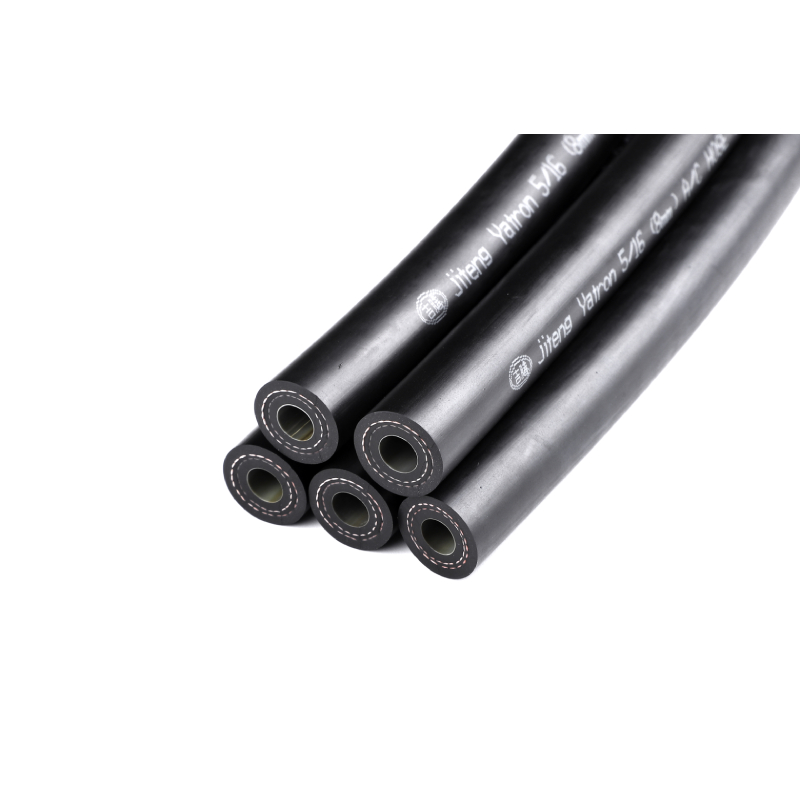Replacement Options for Diesel Fuel Filling Hose and Accessories
Dec . 14, 2024 12:14 Back to list
Replacement Options for Diesel Fuel Filling Hose and Accessories
Understanding Diesel Filler Hoses Importance, Features, and Maintenance
In the world of diesel fuel management, the diesel filler hose plays a vital role. This component connects the fuel storage tank to the refueling nozzle, directing the flow of diesel fuel into a vehicle or machinery. Understanding the intricacies of diesel filler hoses can enhance operational efficiency, prevent fuel spills, and ensure the safety of both personnel and equipment.
Importance of Diesel Filler Hoses
The primary function of a diesel filler hose is to facilitate the transfer of fuel from a storage tank to a vehicle's fuel system. Diesel fuel is a crucial energy source for many applications, from transportation to heavy machinery. Due to the high density of diesel compared to gasoline, its handling requires specialized equipment that can endure the specific demands of transferring bulky liquids.
Furthermore, diesel filler hoses are designed to resist both abrasion and corrosion, owing to the chemical nature of diesel fuel, which can be more viscous and can contain particulate matter. A high-quality diesel filler hose can accordingly prevent leaks, reduce the risk of contamination, and ensure that the fuel flowing through it retains its integrity.
Key Features of Diesel Filler Hoses
1. Material Composition Diesel filler hoses are typically made from materials such as rubber or thermoplastic, which provide flexibility and resistance against corrosive elements. The materials are often reinforced with textiles or steel to enhance their durability.
2. Size and Compatibility Diesel filler hoses come in various sizes, depending on the application and the flow rate required. It is crucial to choose the right diameter and length to ensure optimal fuel flow and prevent bottlenecks during refueling.
3. Temperature Resistance Diesel can be affected by temperature fluctuations, which can cause issues during fuel transfers. High-quality hoses are designed to withstand temperature variations without degrading or losing structural integrity.
4. Safety Features Many diesel filler hoses incorporate safety features such as automatic shut-off valves to prevent spills when the tank is full. This is a critical attribute, as diesel spills can have serious environmental consequences.
diesel filler hose

5. Static Electricity Prevention Static charge can build up during fuel transfer, creating a fire hazard. Some diesel filler hoses are designed to dissipate static electricity, lowering the risk of ignition and making the refueling process safer.
Maintenance of Diesel Filler Hoses
Regular maintenance of diesel filler hoses is essential to ensure their longevity and reliability. Here are some proactive measures to consider
1. Regular Inspection Conduct visual inspections for cracks, leaks, or signs of wear. Look for bulges or other deformities that could indicate a compromised hose.
2. Cleaning Keep the exterior of the hose clean to prevent the buildup of contaminants that could degrade the material. Use mild detergents and avoid harsh chemicals that can weaken the hose's structure.
3. Storage When not in use, store diesel filler hoses in a cool, dry place away from direct sunlight, as prolonged exposure can lead to premature degradation.
4. Testing for Leaks Periodically test hoses under operating conditions to ensure no leaks occur during fuel transfer. Any signs of a leak warrant immediate replacement to maintain safety.
5. Replacement Depending on usage, hoses may have a finite lifespan. It is critical to replace hoses showing signs of extensive wear or after a predetermined number of operating hours, as specified by the manufacturer.
Conclusion
The diesel filler hose may appear to be just a simple component in the larger system of fuel management, but its role is indispensable. Ensuring that these hoses are of high quality, properly maintained, and compatible with your fuel system is essential for safe and efficient operations. Knowledge of their features and the importance of regular inspections can help prevent costly incidents and ensure that diesel fuel is transported effectively, safeguarding both the environment and the safety of personnel involved in fuel management. Investing time and resources into understanding and caring for diesel filler hoses is a proactive approach that pays dividends in the long run.
